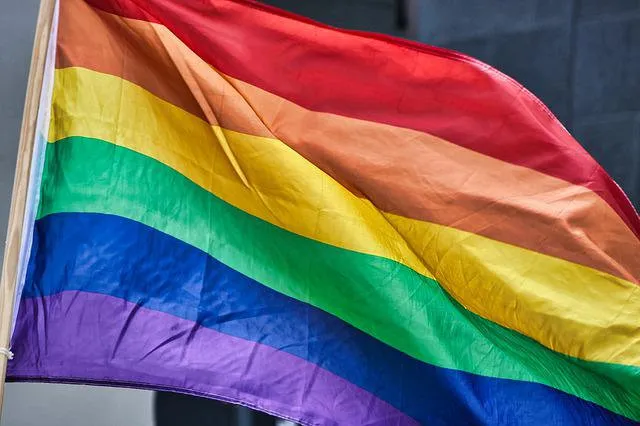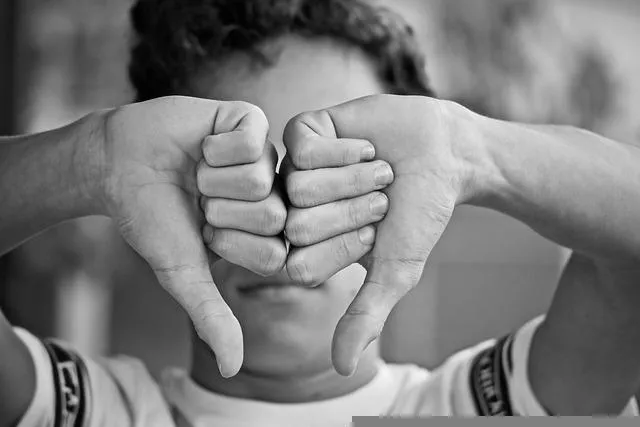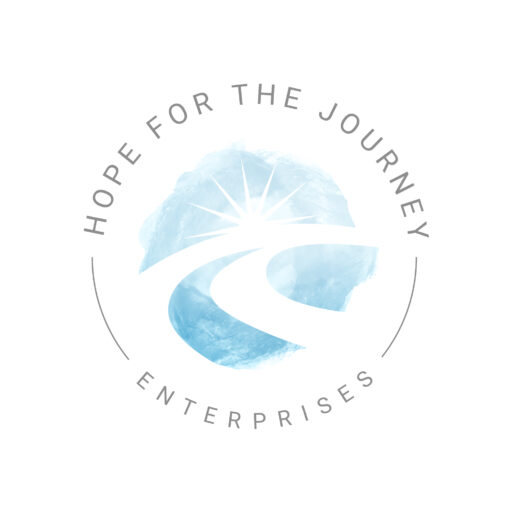How You Can be an
LGBTQIA+ Ally all
Year Long
Jun 22, 2022 | By: Hope for the Journey
The whole month of June is Pride Month.
It is a time when millions of people show their support for the LGBT community. It’s common to see an abundance of pride flags, clever posters being displayed at marches and parades, and people changing their Facebook, Instagram, and Twitter profile pictures to reflect their support of the LGBTQIA+ community.
But what happens when June is over? A lot of the time, issues that plague the community are suddenly forgotten and slip to the back of everyone’s minds. After all, there are so many other populations that need help and support, and you’ve already dedicated an entire month to the LGBT community. You can’t spend all of your weekends at marches and protests. Right?

In reality, being an ally is something you are, not something you do. In a time that seems to be filled with hate, violence, and intolerance, the LGBT community needs its allies more than ever. Fortunately, you can be an ally any day of the month, any month of the year. You can be an ally at home, school, work, and anywhere else. You don’t have to mark off days on your calendar to be an advocate or show your support, so read on to find out how you can be an ally all year long!
What Does LGBTQIA+ Mean?
That’s a lot of letters so let’s define what each one stands for.
L = Lesbian, G = Gay, B = Bisexual, T = Transgender, Q = Queer or Questioning, I = Intersexual, and A = Asexual or Ally. The “+” represents any other identity or label that doesn’t fit in the heterosexual/cisgender box.
Why is it Important to be an LGBTQIA+ Ally in Austin, Texas?
Like any other marginalized group in our country, the LGBT community has its own unique set of needs and rights that are overlooked, withheld, or seen as undeserved (e.g., same-sex marriage, gender-affirming healthcare, adoption, anti-discrimination protections, etc.).
Currently, in Texas, there are no laws that protect people from discriminating against people who identify as LGBTQIA+ in areas like housing, employment, and accessing certain services. There are no good reasons for these gaps in rights and opportunities. While the legal aspect of discrimination can feel out of our control, anyone can take steps toward shifting our society and culture into being more accepting, understanding, and equal.

How to be an LGTBQIA+ Ally all Year Long
People don’t stop being gay or feeling as though they are in the wrong body once Pride Month is over; discrimination, hate, and inequality don’t stop either. Here are seven tips on how to be an ally all year long.
Being an LGBTQIA+ Ally Tip #1: Learn and Use Inclusive Language and Terminology
As humans, we like to put things in nice little categories, and our language around LGBTQIA+ issues reflects that. Learn the terminology that is preferred among LGBT members and doesn’t exclude people from conversations. For example:
- Say “all genders” instead of “both genders,” or “opposite sex.” This acknowledges the existence of more than two genders.
- Say “gay” instead of “homosexual.” The term homosexual is indicative of a diagnosis and no one wants to be labeled by their diagnosis.
- Say “transgender people” and “cisgender people” instead of “normal people.”
- Say “Good morning, everyone,” instead of “Good morning, ladies and gentlemen.”
It’s also important to learn appropriate terminology when speaking about sex, gender, and sexual orientation or sexuality.
A lot of people get caught up in the idea that sex and gender are the same things and therefore your gender identity can only be male or female. That’s not the case!
Sex is the term we use to identify the sexual biology (genitalia, hormones, genes, and chromosomes) an individual has when they are born. Typically, humans are identified as male, female, or intersex.
Gender is the social and cultural expression of femininity, masculinity, and its variations. These expressions include roles, behaviors, relationships, and attributes that don’t have to correspond with a person’s biological sex. Gender is fluid and changes as our society and culture change. Before women were allowed to work outside the home, having a job – something that only men could have – was considered a masculine norm. Today, nobody would label employment as inherently masculine.
Sexual orientation or sexuality is all about who a person is attracted to and drawn to romantically and sexually. This again is not a one-or-the-other type of situation and doesn’t have to be static.
The Human Rights Campaign’s glossary can help you learn the correct terminology to be inclusive of the LGBTQIA+ community.
Being an LGBTQIA+ Ally Tip #2: Respect Pronouns
Addressing people by their preferred pronouns is respectful and inclusive. It’s so easy to do. We use people’s preferred pronouns every single day. But, for some, it’s harder to use the correct pronouns when an individual doesn’t fit into the tiny box that our society finds acceptable (straight and cis-gendered). So, respect people’s pronouns and get comfortable with asking instead of assuming.
Being an LGBTQIA+ Ally Tip #3: Share Your Own Pronouns
Sharing your pronouns normalizes identifying and talking about gender. This can be as simple as adding your preferred pronouns to your email signature. Or, stating what your pronouns are when you introduce yourself. It sends a clear message that individual preferences are important to you. It also prevents accidental misgendering and shows that you won’t make assumptions about someone else’s identity.
Being an LGBTQIA+ Ally Tip #4: Check Your Values & Beliefs
Being an ally is super easy if you already believe that all people deserve to be treated with dignity and respect regardless of their identity. If respect for your fellow humans isn’t a value or belief you hold, there can be some underlying reasons that can be helpful to explore! We’ve all fallen into distorted thinking at some point, but sometimes past traumas can contribute to getting stuck in thinking distortions like black-or-white thinking or overgeneralization.
An example of black-or-white thinking is believing that things are either good or bad, right or wrong, normal or abnormal, and nothing in between. That simply isn’t true. Life is nuanced and full of gray areas. Black-or-white thinking causes us to live in extremes.
Someone who overgeneralizes may think something like, “The person who did that bad thing was gay, therefore all gay people must be bad.” The world would sure feel safer if we could attribute the bad actions of one member of a group to the entire group, but that’s not accurate.
On top of cognitive distortions, past traumas can also lead to hypervigilance where we are constantly on alert for potential dangers. Since the lifestyles of LGBTQIA+ people may seem inexplicable and foreign to some, our traumatized systems can translate that as dangerous.
It can feel uncomfortable to look at ourselves, but gaining insight into our values and beliefs leads to growth, and therapy is a great place to start!
Being an LGBTQIA+ Ally Tip #5: Speak Up
Challenge the people around you when they make degrading jokes or comments about the LGBT community or its members. People who make insensitive jokes probably aren’t going to be open to a lecture or logical debate, so clearly expressing your disapproval is the way to go.

If someone makes a joke, say something like, “I don’t get it, explain it to me.” Having to explain an insulting joke is usually really uncomfortable for the jokester and takes all the “humor” away.
Phrases like, “Don’t talk like that,” “That’s enough,” “Not cool,” “Really?,” or just a plain “No,” gets the point across that bigotry isn’t acceptable around you.
Let the person know that you have friends and family in the LGBTQIA+ community and that you have found they are not at all how the person’s “joke” or take portrays them to be.
Being an LGBTQIA+ Ally Tip #6: Be Comfortable with Discomfort
Learning something new and putting it to use can result in lots of mess-ups, and mess-ups can make you feel like a failure or an embarrassment. Neither of those is true! Mistakes allow us a chance to reflect on what went wrong and what we can do better next time. The same cannot be said about successes. We learn much more from failing than succeeding, so lean into any discomfort you feel when communicating with or about the LGBTQIA+ community. Listen to learn, not to be heard or have your assumptions about someone else validated.
Being an LGBTQIA+ Ally Tip #7: Educate Yourself
Most LGBTQIA+ people don’t mind telling you about themselves and their own experiences. But, it’s not their job to educate you on the entire community and its issues. It’s up to you to educate yourself and not put that burden on others. There are so many great resources out there that are specifically meant to educate. Check out this Buffer Blog which has already compiled over 50 resources!

Let’s Get Started With LGBTQIA Therapy in Round Rock, TX or Austin, TX
If you’re ready to be an ally, still have some uncertainties about supporting your fellow humans, or are in need of an ally, reach out to us today. We have therapists available to help virtually and in person in our Austin and Round Rock offices. Our care coordinator can speak with you directly to help find the best fit to meet you where you’re at.
Our team of caring therapists would be honored to support you in learning the skills to help you better cope with and understand the issues you face. You deserve to feel hopeful and proud of the person you are. To start therapy with Hope For the Journey, please follow these simple steps:
1. Contact Hope for the Journey
2. Meet with a caring therapist
3. Start receiving the support you deserve.
